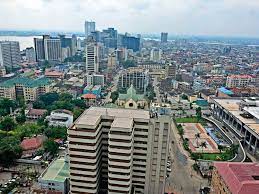Inflationary pressures continue to escalate in Nigeria, with headline inflation surging by 98 basis points to 29.90% year-on-year in January, according to the latest data released by the National Bureau of Statistics (NBS). This rise, compared to December’s 28.92% year-on-year figure, is attributed to persistent challenges including chronic foreign exchange pressures, a widening gap between food demand and supply due to below-average harvests, and elevated prices of diesel and gas.
The unfavorable base effects from the previous year further compounded the situation. The consumer price index reflects broad-based pressures across both the food and core baskets, with food inflation reaching a staggering 35.41% year-on-year, a 19-year high, and core inflation rising to 23.59% year-on-year. On a month-on-month basis, consumer prices increased by 35 basis points to 2.64%, marking the highest print in five months.
Analysts anticipate short-term challenges such as heightened conflicts in the North and rising transport costs to impact food access and disrupt distribution networks, particularly during the post-harvest period. Persistent currency pressures and elevated energy costs are expected to keep pressure on the core basket, with a forecasted consumer price settling at 30.34% year-on-year in February.
On a more positive note, the Nigerian Upstream Regulatory Commission (NUPRC) reported a second consecutive monthly increase in aggregate crude oil production, including condensates. Crude oil production rose by 5.9% month-on-month to 1.64 million barrels per day in January, compared to December 2023’s 1.55 million barrels per day.
This represents an impressive 11.7% increase from the average crude production level recorded in 2023. Notably, production at the Bonny terminal reached a 37-month high, with increased volumes also noted across the Qua Iboe, Forcados, and Escravos production terminals. The positive momentum is attributed to the government’s efforts to curb crude oil theft and vandalism.
The NUPRC recently unveiled a three-year Regulatory Action Plan (RAP) aimed at promoting transparency and accountability in Nigeria’s upstream oil and gas sector, targeting a crude oil production volume of 2.60 million barrels per day by 2026. Despite these efforts, analysts caution that frequent pipeline leaks and intermittent oil terminal shutdowns for repairs may pose downside risks to crude oil production in the near term. The estimated average crude oil production (including condensate) for 2024 is maintained at 1.59 million barrels per day, contrasting with the government’s estimate of 1.78 million barrels per day.















